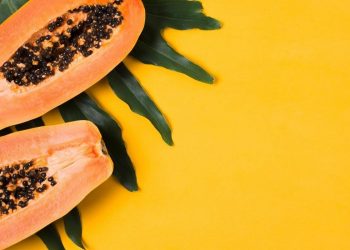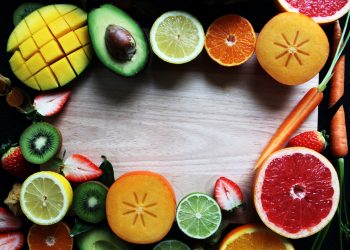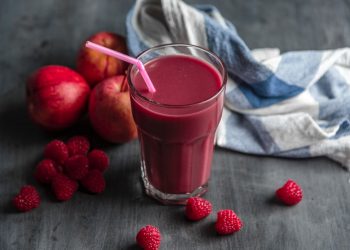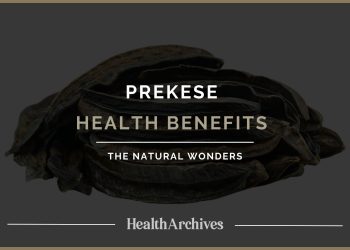It is essential to stay healthy because the modern world has left us exposed to several viruses and infections. A strong immune system can help you prevent and combat diseases to live a healthy life. When you sleep well, exercise, maintain your hygiene, and avoid stress, it helps you have a healthy life.
In doing so, the food you consume is most important as it can give energy to your brain and body. Here is a list of food nutrients that give your immune system a kick start.
1. Vitamin C

Vitamin C is an antioxidant that prevents harm to the immune system by unstable molecules. When you catch a cold or flu, instead of antibiotics, consume food rich in Vitamin C. Antibiotics affect your immune system, while Vitamin C increases the production of White blood cells, fights infections, and gives you healthy skin with improved eye health.
The food items that are a rich source of Vitamin C are:
- Citrus fruits (lemons, oranges, and grapefruit)
- Kiwi fruit
- Guava
- Brussel sprouts
- Cauliflower
- Red bell peppers
- Brocolli
- Papaya
- Strawberry
2. Vitamin E

Vitamin E is also a source of antioxidants. These help in fighting infections, preventing heart problems, inflammation, and reduces cancer risk. In aged people, the cells in the body have decreased immunity, but Vitamin E consumption assists in improving immune functions.
More than 200 chemical reactions in the body require Vitamin E. It is a life source for immunity, especially in older people.
The foods that you can intake as a source of Vitamin E are:
- Wheat germ oil
- Leafy vegetables (spinach, broccoli)
- Nuts and seeds (almonds, hazelnut, peanuts, pine nuts, cashew nuts, and sunflower seeds)
- Avocado
- Mango
- Seafood (Salmon, trout, cod, lobster)
3. Vitamin D

The nutrients you eat, like calcium, are absorbed in the body with the assistance of Vitamin D. It promotes the development and growth of stronger bones. If children have a deficiency of Vitamin D, it can lead to rickets. While in adults, the deficiency can cause osteomalacia.
Vitamin D improves the immune system’s functioning, neuromuscular system and improves cells’ life cycle in the body. It leads to a lower risk of a variety of diseases.
The sources of Vitamin D are:
- Fortified foods (cow milk, soy milk)
- Orange juice
- Cereals, oatmeal
- Fatty fish (salmon, tuna, sardines)
- Yogurt
- Egg yolk
- Mushrooms
4. Vitamin A

Vitamin A is known for its anti-inflammation properties. It is a power-packed source to give a boost to the immune system. It promotes growth and development, maintains vision, and reduces cancer risk.
The anti-inflammation vitamin acts as a natural defense mechanism for the body. It creates mucous barriers to hinder the entrance of infectious agents and bacteria in the eyes, lungs, and genitals, and gut.
The food sources to obtain Vitamin A are:
- Meat and meat liver (Beef liver, lamb liver, cod liver oil, chicken)
- Salmon
- Cheese (goat cheese, cheddar, blue, and feta cheese)
- Caviar
- Dairy products (butter, milk)
- Cooked foods (sweet potato, kale, turnip greens, carrot, spinach, and sweet red pepper)
- Boiled egg
5. Folic Acid

Folic acid promotes and maintains the growth of healthy cells in the body. Therefore, proving the body with a refreshed energized immune system. It also prevents cancer by hindering the change in DNA. The lack of red blood cells (anemia) can also be treated by folic acid. Food sources of folic acid are:
- Beans
- Green leafy vegetables
- Pasta
- Whole grains
- Rice
6. Iron

The cells in the body need oxygen to function properly and iron provides them with that. Iron acts and an immunity booster to improve concentration and prevents anemia. The food items which are rich in iron are:
- Shellfish (oysters, mussels, clams)
- Liver and organ meats
- Poultry (chicken, turkey, seafood)
- Legumes (beans and lentils)
- Pumpkin and sunflower seeds
- Brocolli
- Tofu
- Dark Chocolate
7. Zinc

Zinc helps to provide essential nutrients to build proteins and DNA. It improves immunity by fighting bacteria and viruses. The food sources which you can consume to obtain Zinc are:
- Oysters, Crab
- Baked beans
- Yogurt
- Chickpeas
- Wild rice
- Lobster
- Green peas
- Pecans
- Roasted peanuts
Apart from this, you must consult your doctor and nutritionist. They will guide you according to your dietary requirements for vitamins and minerals. It is important to consult because you should know about any food allergies or intolerance you might have.











